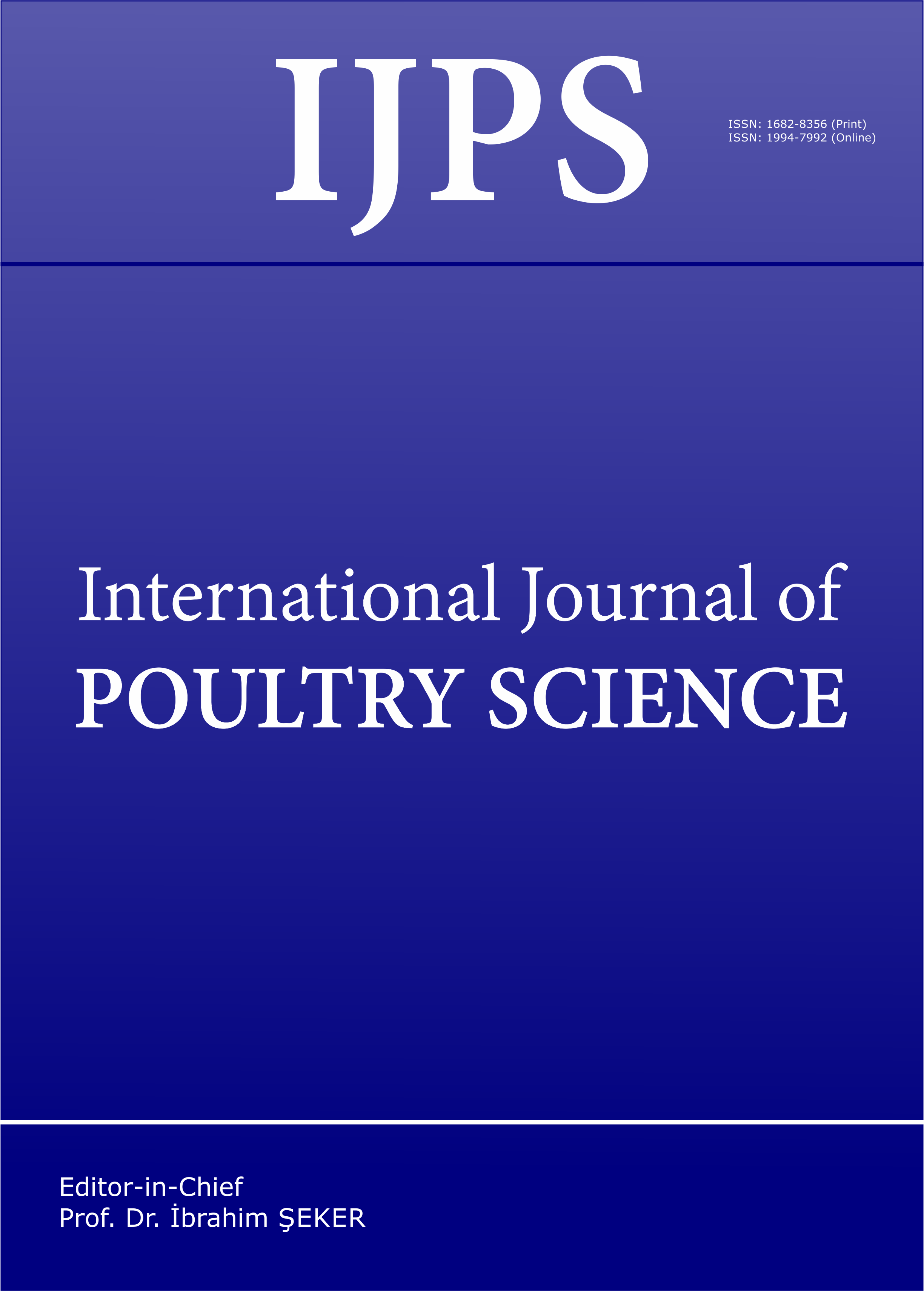Effects of Supplemental Fat on Performance of Laying Hens
DOI:
https://doi.org/10.3923/ijps.2005.998.1000Keywords:
Egg weight, feed conversion, supplemental fatAbstract
360 Hy-line W36 hens were fed the diets with four different levels of fat (0, 1.5, 3.0 and 4.5%) to determine different levels of supplemental fat on performance of laying hens from 35 to 44 week of age. Hy-line W-36 hens at 35 week of age were randomly assigned into 4 dietary treatments (6 replicates of 15 birds per treatment). As fat level increased, feed intake linearly decreased from 99.1 to 93.5, resulting a 5.7% decrease in feed intake. As fat level increased, feed conversion linearly decreased. Increasing fat had no effects on egg production, egg weight, egg mass, egg specific gravity, and body weight of laying hens. Increasing fat improved nutrient (protein, amino acids, calcium, and phosphorus) utilization. It may be a good choice to supplement high level of fat to improve protein (amino acids) utilization and to decrease cost of production especially when fat price is cheap and prices of protein source ingredients are expensive.
Downloads
Published
Issue
Section
License
Copyright (c) 2005 Asian Network for Scientific Information

This work is licensed under a Creative Commons Attribution 4.0 International License.
This is an open access article distributed under the terms of the Creative Commons Attribution License, which permits unrestricted use, distribution and reproduction in any medium, provided the original author and source are credited.

